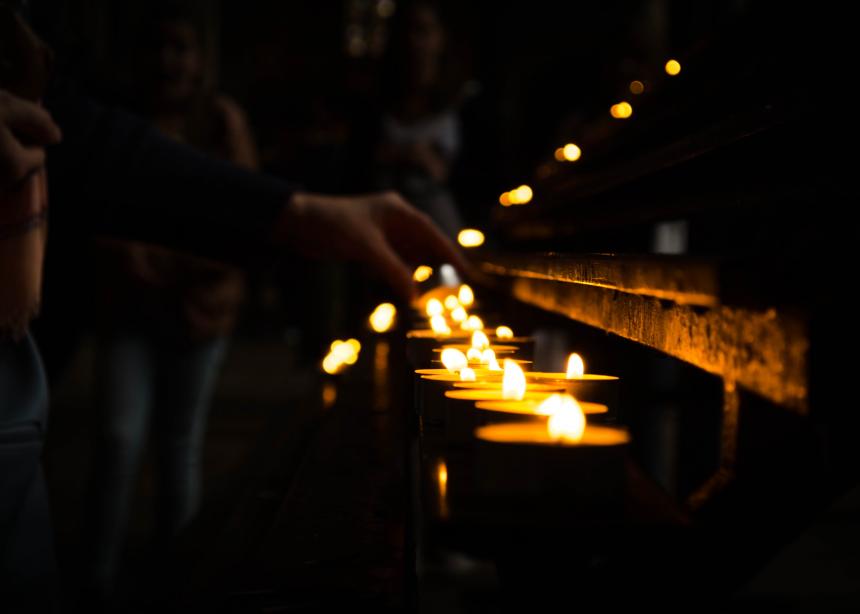“There is a time for everything, and a season for every activity under heaven: A time to born and a time to die . . . .” (Ecclesiastes 2:1-2).
Over the years, I have come to refer to the process of dying as “the long wait.” Although it is true that we begin dying the moment we are born, most of us live our lives in denial, as though we are immortal, ageless. Unless we are taken quickly in some senseless tragedy or sudden illness, those who are dying and those who accompany the dying enter into “the long wait.”
Those who stand vigil with the dying fool themselves into believing that “the long wait” somehow prepares them for the inevitable. As we watch the pulse of a vein through translucent skin and lean in to detect shallow breaths on our cheek, we believe we are ready for the inevitable.
“It’s time,” we say. “She’s in such pain,” we explain, as if death needs an excuse. We tell ourselves these things and stack them like building blocks in a dam, with the intention of holding back the intense pressure of impending grief and loss that threatens to burst free at the most inappropriate times.
But death, when it comes, is always a shock. In a heartbeat, the border between life and death is breached. Letting go of their hand, we see the dead pass through this border and we are left behind to try to make sense of the fact that they are just . . . gone.
Left alone with our memories, we are reminded of the brevity and fragility of life, at how much and whom we take for granted. The author of the Book of James writes: “Yet you do not even know what tomorrow will bring. What is your life? For you are a mist that appears for a little while and then vanishes” (James 4:14).
Strange as it may sound, the words of James struck me on one occasion as I was preparing to record my mileage. Mileage is not just about kilometres covered over the course of a month; it’s a record of people encountered and the shift in needs over a given period of time. A series of recorded trips to the hospital, for example, abruptly ends with a trip to the cemetery.
For some, grasping the reality of a death is not immediate. It may not occur until long after the funeral flowers have wilted, the thank-you cards have been distributed, and the last casserole is eaten. And then, one day, a sound, a touch, a picture, a smell, or even something as mundane as a mileage record, can trigger that incredulous voice of truth within, “He’s really gone.”
During the pandemic, many entered into “the long wait.” Due to restricted access to loved ones at such a sensitive time, anger often merged with grief at the seeming injustice of it all. As we attempt to breathe life back into those who are depleted and fragile after “the long wait,” James invites us to consider our own mortality: “What is your life?” he whispers into the mist.
“Remember your creator in the days of your youth, before the days of trouble come, and the years draw near when you will say, ‘I have no pleasure in them’; . . . before the silver cord is snapped, and the golden bowl is broken, and the pitcher is broken at the fountain, and the wheel broken at the cistern, and the dust returns to the earth as it was, and the breath returns to God who gave it . . . .” (Ecclesiastes 12:1,6-7).
Anna-Lisa Salo is pastor of Bergthal Mennonite Church, Didsbury, Alta.
Read more From Our Leaders columns:
Worship is what I need
I’m thinking about sparrows
New CommonWord website launched
Make room and time for the Holy Spirit
A column about plague columns




Add new comment
Canadian Mennonite invites comments and encourages constructive discussion about our content. Actual full names (first and last) are required. Comments are moderated and may be edited. They will not appear online until approved and will be posted during business hours. Some comments may be reproduced in print.